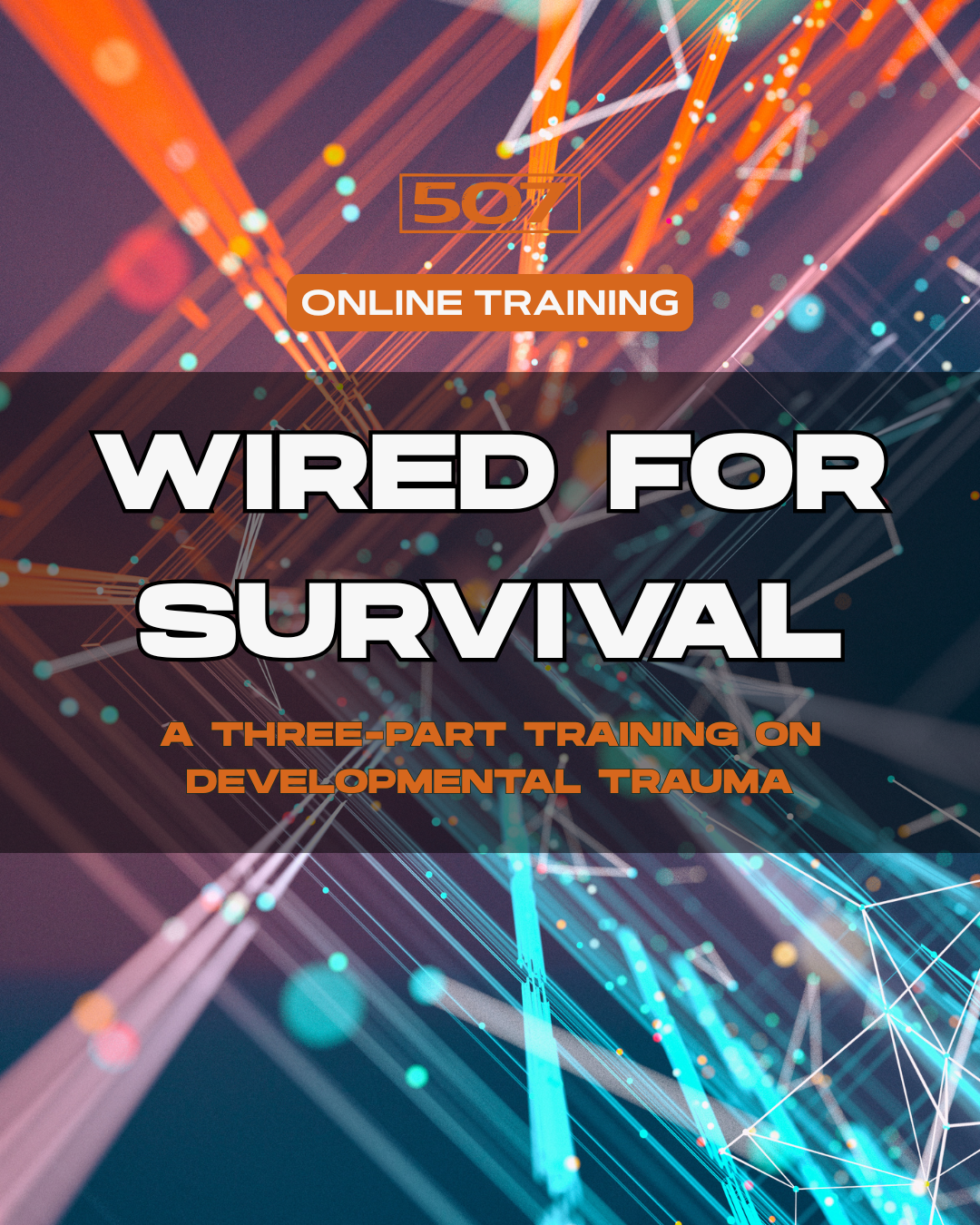Training & Events
Project 507 develops bespoke and transformative training for professionals who work with individuals, groups and communities affected by violence and trauma. The aim is to share Project 507 practice and develop professional understanding through workshops, seminars and courses, designed and delivered by trained and experienced practitioners.
Our training is for: youth and community workers, volunteers, teachers/educators, criminal justice staff (prison, probation, YJS, police officers), social services, researchers, policymakers, charity and voluntary sector professionals, university students, funders and senior leaders.
Current training & EVEnts
Behind the behaviour
Understanding Trauma Responses in real time
Aim: To help practitioners recognise trauma responses in real time, respond with insight not judgement, and reflect on how our own systems sometimes fail to listen to what behaviour is really saying.
By the end of this session, you’ll be able to:
Get clear on what trauma actually is - not just the big, obvious stuff, but the quieter, chronic experiences that shape how people think, feel and cope.
Understand what trauma does to the brain and body - and why that shows up in behaviour that often gets labelled as difficult, defiant, or attention-seeking.
Recognise behaviour as communication - not random, not manipulative, but a survival strategy that makes sense once you understand what’s behind it.
Explore real-life ways to respond - interventions, tools and relational approaches that help you support traumatised children and young people without escalating the situation or burning yourself out.
Please note this course is in-person only.
Date/Time
Thursday 11th September 2025
10:00 - 16:00
Wired for Survival
A Three-Part Training on Developmental Trauma
Aim:
To build a foundational understanding of developmental trauma by exploring its impact on the brain, body, and behaviour and to equip practitioners with neurobiological and biopsychosocial frameworks to support trauma-informed practice.
Learning Objectives:
By the end of this training, participants will be able to:
Define developmental trauma and understand its unique impact on childhood development and long-term health outcomes.
Describe how trauma affects the developing brain and nervous system, including key stages of brain development and basic neuroanatomy.
Explain the relationship between trauma, the body, and survival responses including how the body stores traumatic memory and responds to threat.
Identify how trauma-related behaviours emerge from underlying biological and neurological adaptations.
Apply trauma-informed approaches rooted in neuroscience, biology, and relational frameworks to support safer, more effective practice.
Dates:
Saturday 11th October 2025
Saturday 18th October 2025
Saturday 25th October 2025
Time: 10:00 - 13:00 (BST)
Booking Training
We deliver training on the following subjects:
An Introduction to Psychological Trauma
Trauma and the Brain
Trauma and the Body
Trauma and Behaviour
An Introduction to Trauma Informed Practice
Trauma Informed Practice in Practice
Responding to a Violent Incident
Behind the Behaviour: Responding to trauma in real time
The Relationship Between Trauma and Violent Behaviour
Ripple Effects: Working and Living in Traumatic Environments
We have a range of options for delivering training including in-person and online, full day or half day, and even two, three and six session bundles. Alternatively, we can create training bespoke to your needs.
FREE Training for Professionals working in Lambeth
Who? Safeguarding leads, team managers, social workers, people with safeguarding decision-making responsibilities and frontline practitioners.
Why? To improve relationship-based practice and embed trauma-informed approaches to safeguarding.
What? Learning objectives:
To understand the meaning of psychological trauma and the biological impacts
To explore how traumatic experiences can affect identity, world view and behaviour
To examine how, even violent behaviour, can be an expression of trauma and understood as communication
To understand the relationship between trauma and safeguarding practice
To develop confidence to support and respond to traumatised children and their families
To reflect upon personal and professional impact of trauma-informed practice and the importance of wellbeing
Dates:
Wednesday 26th February 2025
Wednesday 30th April 2025
Wednesday 25th June 2025
NEW DATES ADDED
Wednesday 30th July 2025
Wednesday 24th September 2025
Wednesday 26th November 2025
Time: 10:00 - 16:00



